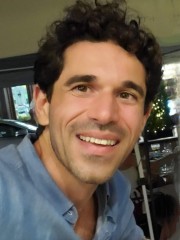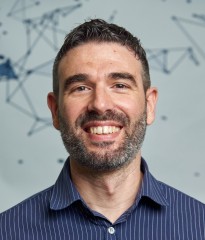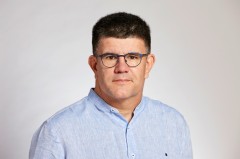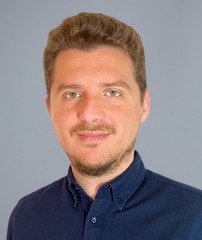IEEE SPS 1st Winter School on AI for 6G Communications
The purpose of this Winter School is twofold. The primary objective is to provide students with a comprehensive understanding of the enabling technologies and core research challenges shaping the evolution of 6G networks, with a special emphasis on the convergence of Artificial Intelligence and its application to cloud and edge computing. Tutorials and Presentations will provide insights into key technologies and tools for network programming, distributed systems, orchestration, and virtualization, as well as other fundamental topics in machine learning and deep learning applied to networks. Sessions will go into both theoretical and practical aspects of network sensing, edge intelligence, AI-driven networking, and the design of disaggregated, programmable networks, identifying critical emerging research topics within the broader 6G framework.
The second objective is to familiarize students with the advanced tools and methodologies supported by the UNICO I+D projects 6G-CLARION, 6G-RIEMANN, and SORUS, which pioneer research in these cutting-edge areas. The Winter School will feature dedicated sessions on these topics, enabling students to gain valuable experience with state-of-the-art research tools.
ORGANIZING COMMITTEE
General Co-Chairs
– Marco Gramaglia, Universidad Carlos III de Madrid
– Pablo Serrano, Universidad Carlos III de Madrid
Vice General Co-Chairs
– Carlos M. Ramírez, Universidad Las Palmas
– Miguel A. Quintana, Universidad Las Palmas
Technical Program Co-Chairs
– Matilde P. Sánchez, Universidad Carlos III de Madrid
– Ramón Agüero, Universidad de Cantabria
Operations Chair
– Ramón Sánchez, Universidad de Murcia
Date and Time
Location
Hosts
Registration
-
 Add Event to Calendar
Add Event to Calendar
Speakers
Antonia M. Tulino
Biography:
 Antonia M. Tulino (F’13) received her Ph.D. in Electrical Engineering from the Seconda Università degli Studi di Napoli, Italy, in 1999. She has held research positions at the Center for Wireless Communications, Princeton University; in Oulu, Finland; and at the Università degli Studi del Sannio, Benevento, Italy. From 2002 to 2016, she served as an Associate Professor at the Università degli Studi di Napoli Federico II, where she has been a Full Professor since 2017. Since 2002, she has also collaborated with Nokia Bell Labs, serving as a Senior Researcher and leading the Network Information Flow group.
Antonia M. Tulino (F’13) received her Ph.D. in Electrical Engineering from the Seconda Università degli Studi di Napoli, Italy, in 1999. She has held research positions at the Center for Wireless Communications, Princeton University; in Oulu, Finland; and at the Università degli Studi del Sannio, Benevento, Italy. From 2002 to 2016, she served as an Associate Professor at the Università degli Studi di Napoli Federico II, where she has been a Full Professor since 2017. Since 2002, she has also collaborated with Nokia Bell Labs, serving as a Senior Researcher and leading the Network Information Flow group.
Since October 2019, she has been a Research Professor in the Department of Electrical and Computer Engineering at NYU Tandon School of Engineering, New York, USA. In September 2020, she was appointed Teaching Director of the 5G Academy, a joint initiative of the Università degli Studi di Napoli Federico II and several global leaders in digital transformation, including Capgemini, TIM, Nokia, Fastweb, and PagoPA.
In her research, Prof. Tulino has made groundbreaking contributions to key areas such as multi-antenna systems, random matrix theory, free probability theory, cache-aided content distribution, and cloud network control. She has been invited to speak as a tutorial presenter, keynote speaker, and plenary speaker at various prestigious international conferences.
Her publication record includes over 80 peer-reviewed journal articles, 160 conference papers, 10 book chapters, and a seminal book on random matrices and wireless communications. Additionally, she holds more than 20 granted patents, with an equal number currently pending. Prof. Tulino has also led numerous high-impact research projects funded by the European Union and the Italian National Research Council.
From 2011 to 2013, she served on the Editorial Board of the IEEE Transactions on Information Theory. In 2013, she was elevated to IEEE Fellow, and since 2019, she has chaired the IEEE Information Theory Society Fellows Committee. Prof. Tulino has received numerous awards, including the 2009 Stephen O. Rice Prize for the best paper in the IEEE Transactions on Communications. She was also awarded the UC3M-Santander Chair of Excellence (2018–2019), the 1000 Talent Program Award, and was selected by the National Academy of Engineering for the Frontiers of Engineering program in 2013.
Jaime Llorca
Biography:
 Jaime Llorca is a Research Professor at the NYU Tandon School of Engineering’s Electrical and Computer Engineering Department. He previously held a Senior Research Scientist position with the Network Algorithms Group at Nokia Bell Labs, NJ, a Communication Networks Research Scientist position with the End-to-End Networking Group at Alcatel-Lucent Bell Labs, NJ, and a post-doctoral position with the Center for Networking of Infrastructure Sensors, College Park, MD. He received M.S. and Ph.D. degrees in Electrical and Computer Engineering from the University of Maryland, College Park, MD. His research interests are in the fields of network algorithms, network optimization, machine learning, and distributed control, with applications to next-generation communication networks, mobile/edge/cloud computing, end-to-end service orchestration, cloud-network resource allocation, and content distribution. He has made fundamental contributions to the mathematics of content delivery and distributed cloud networks, including pioneering cooperative caching, network coding, and cloud network control algorithms. He is one of the co-inventors (and co-author of 5 associated patents) of “cache-aided coded multicasting”, a content delivery technology that allows serving unicast demands via cache-enabled coded multicast transmissions. He also introduced “cloud-network flow”, a generalization of multi-commodity flow that allows efficiently optimizing distributed applications that consume both cloud (compute and storage) and network resources. He has authored more than 100 peer-reviewed publications and 20 patents. He currently serves as an Associate Editor for the IEEE/ACM Transactions on Networking. He is a recipient of the 2007 Best Paper Award at the IEEE International Conference on Sensors, Sensor Networks and Information Processing, the 2016 Best Paper Award at the IEEE International Conference on Communications, and the 2015 Jimmy H.C. Lin Award for Innovation.
Jaime Llorca is a Research Professor at the NYU Tandon School of Engineering’s Electrical and Computer Engineering Department. He previously held a Senior Research Scientist position with the Network Algorithms Group at Nokia Bell Labs, NJ, a Communication Networks Research Scientist position with the End-to-End Networking Group at Alcatel-Lucent Bell Labs, NJ, and a post-doctoral position with the Center for Networking of Infrastructure Sensors, College Park, MD. He received M.S. and Ph.D. degrees in Electrical and Computer Engineering from the University of Maryland, College Park, MD. His research interests are in the fields of network algorithms, network optimization, machine learning, and distributed control, with applications to next-generation communication networks, mobile/edge/cloud computing, end-to-end service orchestration, cloud-network resource allocation, and content distribution. He has made fundamental contributions to the mathematics of content delivery and distributed cloud networks, including pioneering cooperative caching, network coding, and cloud network control algorithms. He is one of the co-inventors (and co-author of 5 associated patents) of “cache-aided coded multicasting”, a content delivery technology that allows serving unicast demands via cache-enabled coded multicast transmissions. He also introduced “cloud-network flow”, a generalization of multi-commodity flow that allows efficiently optimizing distributed applications that consume both cloud (compute and storage) and network resources. He has authored more than 100 peer-reviewed publications and 20 patents. He currently serves as an Associate Editor for the IEEE/ACM Transactions on Networking. He is a recipient of the 2007 Best Paper Award at the IEEE International Conference on Sensors, Sensor Networks and Information Processing, the 2016 Best Paper Award at the IEEE International Conference on Communications, and the 2015 Jimmy H.C. Lin Award for Innovation.
Marco Fiore
Biography:
 Marco Fiore is a Research Professor at IMDEA Networks Institute, where he leads the Networks Data Science group, and a co-founder and CTO at Net AI, a UK-based network intelligence company. He received MSc degrees from University of Illinois at Chicago and Politecnico of Torino, a PhD degree from Politecnico di Torino, and a Habilitation à Diriger des Recherches from Université de Lyon. Marco has held tenured positions at Institut National des Sciences Appliquées de Lyon and National Research Council of Italy, and has been a visiting researcher at Rice University, Universitat Politècnica de Catalunya, and University College London. Marco’s research has received funding from the European Commission and national agencies in Spain, France and Italy, and has been awarded a number of prizes including the best paper award at IEEE INFOCOM. Marco is a former Marie Curie fellow and Royal Society visiting research fellow, a Senior Member of IEEE, and a Member of ACM. Marco’s research interests are at the interface of mobile networks and data science.
Marco Fiore is a Research Professor at IMDEA Networks Institute, where he leads the Networks Data Science group, and a co-founder and CTO at Net AI, a UK-based network intelligence company. He received MSc degrees from University of Illinois at Chicago and Politecnico of Torino, a PhD degree from Politecnico di Torino, and a Habilitation à Diriger des Recherches from Université de Lyon. Marco has held tenured positions at Institut National des Sciences Appliquées de Lyon and National Research Council of Italy, and has been a visiting researcher at Rice University, Universitat Politècnica de Catalunya, and University College London. Marco’s research has received funding from the European Commission and national agencies in Spain, France and Italy, and has been awarded a number of prizes including the best paper award at IEEE INFOCOM. Marco is a former Marie Curie fellow and Royal Society visiting research fellow, a Senior Member of IEEE, and a Member of ACM. Marco’s research interests are at the interface of mobile networks and data science.
Roberto Gonzalez
Biography:
 Roberto González is a Program Manager for Cybersecurity at NEC Laboratories Europe. Holding a PhD in Telematics Engineering from Carlos III University of Madrid, Roberto has extensive expertise in big data, privacy, AI, and cybersecurity. His current work focuses on leveraging generative AI to create advanced cybersecurity solutions, with a particular emphasis on autonomous agents. Throughout his career, Roberto has authored over 40 publications in top-tier venues and holds more than 10 patents. He is passionate about driving innovation in cybersecurity to meet the challenges of an increasingly digital world.
Roberto González is a Program Manager for Cybersecurity at NEC Laboratories Europe. Holding a PhD in Telematics Engineering from Carlos III University of Madrid, Roberto has extensive expertise in big data, privacy, AI, and cybersecurity. His current work focuses on leveraging generative AI to create advanced cybersecurity solutions, with a particular emphasis on autonomous agents. Throughout his career, Roberto has authored over 40 publications in top-tier venues and holds more than 10 patents. He is passionate about driving innovation in cybersecurity to meet the challenges of an increasingly digital world.
Andra Lutu
Biography:
 Dr. Andra Lutu is a senior researcher at Telefonica, where she leads the Network Intelligence and Strategy team, part of Scientific Research. With 10 years of post-PhD experience, she is an expert on Computer network architecture, design and implementation, with deep and extensive knowledge on the telco ecosystem. She has authored more than 70 articles in top venues, such as ACM Mobicom, IEEE INFOCOM, ACM IMC, or IEEE TNET. She has contributed to numerous European projects, among which ORIGAMI, H2020 DAEMON, H2020 MONROE, and she was awarded a Marie Curie individual fellowship during 2019/20. She currently manages a team of post-doctoral researchers and has mentored over 25 PhD and postdoctoral students that have developed their thesis and interned at TID. She fosters international research collaborations with labs both in academia and in the industry.
Dr. Andra Lutu is a senior researcher at Telefonica, where she leads the Network Intelligence and Strategy team, part of Scientific Research. With 10 years of post-PhD experience, she is an expert on Computer network architecture, design and implementation, with deep and extensive knowledge on the telco ecosystem. She has authored more than 70 articles in top venues, such as ACM Mobicom, IEEE INFOCOM, ACM IMC, or IEEE TNET. She has contributed to numerous European projects, among which ORIGAMI, H2020 DAEMON, H2020 MONROE, and she was awarded a Marie Curie individual fellowship during 2019/20. She currently manages a team of post-doctoral researchers and has mentored over 25 PhD and postdoctoral students that have developed their thesis and interned at TID. She fosters international research collaborations with labs both in academia and in the industry.
Fernando Perez-Cruz
Biography:
 Fernando Pérez-Cruz received a Ph.D. in Electrical Engineering in 2000 from the Technical University of Madrid. He is a Sr Advisor on Innovation at the BIS and an adjunct Professor at the Computer Science department at ETH Zurich. He was the Chief Data Scientist at the Swiss Data Science Center. He has been a member of the technical staff at Bell Labs and an Associate Professor at the University Carlos III in Madrid. He has work at Princeton University under a Marie Curie Fellowship and a Research Scientist at Amazon. He has also held positions at the Gatsby Unit (London), Max Planck Institute for Biological Cybernetics (Tuebingen), BioWulf Technologies (New York). His current research interest lies in machine learning and its application to economics, sciences, and engineering. He has an h-index of 42.
Fernando Pérez-Cruz received a Ph.D. in Electrical Engineering in 2000 from the Technical University of Madrid. He is a Sr Advisor on Innovation at the BIS and an adjunct Professor at the Computer Science department at ETH Zurich. He was the Chief Data Scientist at the Swiss Data Science Center. He has been a member of the technical staff at Bell Labs and an Associate Professor at the University Carlos III in Madrid. He has work at Princeton University under a Marie Curie Fellowship and a Research Scientist at Amazon. He has also held positions at the Gatsby Unit (London), Max Planck Institute for Biological Cybernetics (Tuebingen), BioWulf Technologies (New York). His current research interest lies in machine learning and its application to economics, sciences, and engineering. He has an h-index of 42.
Jose A. Ayala-Romero
Biography:
 Jose A. Ayala-Romero received his Ph.D. degree from the Technical University of Cartagena, Spain, in 2019. Then, he joined Trinity College Dublin, Ireland, as a post-doctoral researcher. From January 2021 to September 2022, he was a Senior Data Scientist at Huawei Ireland Research Center, Ireland. Currently, he is a Senior Researcher at NEC Laboratories Europe, Germany. His research interests include the integration of AI and machine learning into mobile networks.
Jose A. Ayala-Romero received his Ph.D. degree from the Technical University of Cartagena, Spain, in 2019. Then, he joined Trinity College Dublin, Ireland, as a post-doctoral researcher. From January 2021 to September 2022, he was a Senior Data Scientist at Huawei Ireland Research Center, Ireland. Currently, he is a Senior Researcher at NEC Laboratories Europe, Germany. His research interests include the integration of AI and machine learning into mobile networks.
Paul Patras
Biography:
 Paul Patras is a co-founder and CEO of Net AI, a network intelligence company developing cutting-edge AI that empowers mobile network operators with highly accurate deep insights and predictive actions to unlock the value of their networks. He is also a Professor of Mobile Intelligence in the School of Informatics at the University of Edinburgh, where Net AI came to life. Dr Patras has over 10 years of experience of leading research at the intersection of mobile networking, artificial intelligence and security, some of which has been transferred from the lab into commercial products. He has spearheaded the use of deep learning to solve several problems in the mobile networking domain, which were previously considered intractable. He is a member of the UK Telecom Innovation Network’s Expert Working Group on AI and advised the United Nations’ International Telecommunications Union on defining an architectural framework for deploying Machine Learning in Future Networks including 5G. He is also an amateur triathlete.
Paul Patras is a co-founder and CEO of Net AI, a network intelligence company developing cutting-edge AI that empowers mobile network operators with highly accurate deep insights and predictive actions to unlock the value of their networks. He is also a Professor of Mobile Intelligence in the School of Informatics at the University of Edinburgh, where Net AI came to life. Dr Patras has over 10 years of experience of leading research at the intersection of mobile networking, artificial intelligence and security, some of which has been transferred from the lab into commercial products. He has spearheaded the use of deep learning to solve several problems in the mobile networking domain, which were previously considered intractable. He is a member of the UK Telecom Innovation Network’s Expert Working Group on AI and advised the United Nations’ International Telecommunications Union on defining an architectural framework for deploying Machine Learning in Future Networks including 5G. He is also an amateur triathlete.

